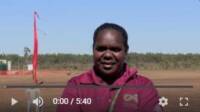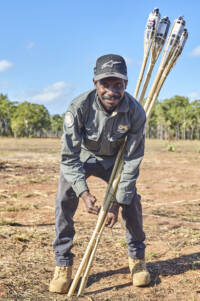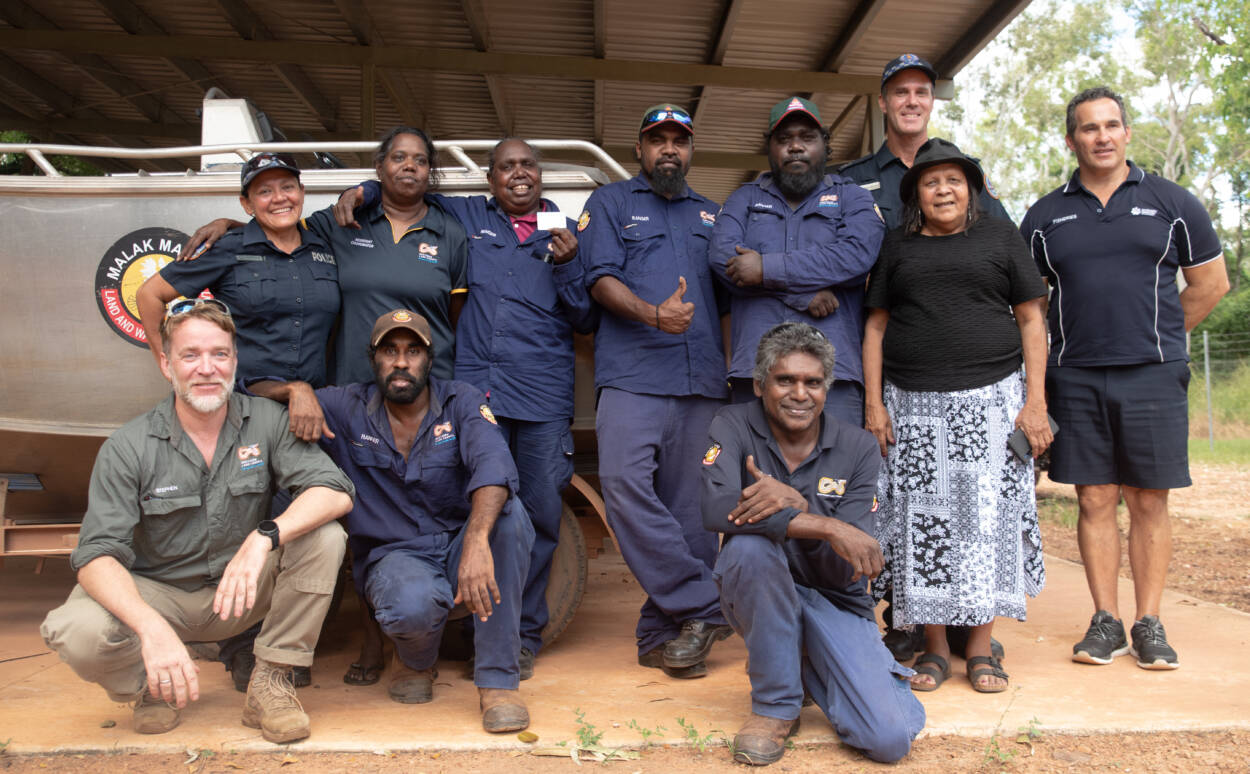Caring for Country
The Caring for Country branch hosts and provides administrative support for land and sea ranger groups and supports joint management of national parks and management of Indigenous Protected Areas (IPAs).
Malak Malak ranger Theresa Lemon (third from left, back row) celebrates her appointment as a Fisheries Inspector Class 1 in June 2021.
We currently service 12 ranger groups and jointly manage seven parks and reserves, including Kakadu National Park.
The NLC actively supports the work of Aboriginal custodians to maintain their cultural obligations to care for this land and sea country through the Caring for Country Branch, which provides environmental and related support services to Traditional Owners who actively manage in excess of 200,000 square kilometres of land and sea country.
Our Approach - Working Together
It is a key objective of the NLC to assist Traditional Owners to manage cultural, land, sea and natural resources in a sustainable manner. Our land and sea managers and others working in the Caring for Country branch are guided by the values and aspirations of the custodians of Aboriginal law and culture.
These principles underpin the operations of the NLC Caring for Country branch, which actively supports Traditional Owners to establish grass-roots land and sea management initiatives across the network of remote homelands, stations and communities.
Who We Are
The Caring for Country Branch at the NLC started in 1995 with the stated purpose of assisting people living on country to preserve healthy landscapes for future generations. At the time of its foundation and since, the branch has consistently lead the country in thinking about, advocating for, and delivering land and sea initiatives which respond to Traditional Owner priorities.
While the branch structure and number of employees have grown and changed substantially, the aims of the branch have remained remarkably consistent over the last 22 years.
The branch helps Traditional Owners plan for the future health of their country and report on the effectiveness of their efforts. Our “two-way” land and sea management philosophy combines the best of traditional knowledge and contemporary science to conserve culture and protect biodiversity. This creates a unique synthesis of management approaches, which are widely recognised as amongst the most effective and innovative available.
Caring for Country plays a key role in land and sea management - including fire management and feral weed and animal control - across the Top End, and has been active in preserving traditional knowledge for future generations of Aboriginal people. Its success in forging funding partnerships with external organisations has allowed it to progressively expand the scale of its activities to the point where it is now one of the largest operating units within the NLC.
As well as the practical need to take action quickly to deal with severe and immediate threats such as the weed Mimosa pigra, other issues include dust suppression action in community areas, management of tourist/recreation areas, wildlife protection programs, control of feral animals and fire management.
A number of programs incorporate joint research with government and other agencies, often paving the way for traditional ecological knowledge and contemporary scientific knowledge to be used side by side to combat environmental problems and find solutions.
Women and Youth Engagement
Caring for Country is conscious of the need to integrate women into land management activities. Most ranger groups now have active participation from women rangers who include themselves in all aspects of the ranger work from spraying weeds to protecting sacred sites. Women have also been enthusiastic participants in the development of family culture groups for all age groups conducted in the school holidays.
The women and youth engagement coordinator provides support and advocacy for women rangers as well as implementation and support for junior ranger programs, which stem directly from Traditional Owners and current ranger group aspirations.
Related Stories

Indigenous Ranger Forum 2019
Dec 4, 2019
Hundreds of rangers from across the Northern Territory, Western Australia and Queensland came together near Darwin in August to share their knowledge and hone their skills.

Rangers honing their skills at 2019 Indigenous Ranger Forum
Sep 3, 2019
Hundreds of Indigenous rangers travelled thousands of kilometres from across the Northern Territory, Western Australia and Queensland to learn, grow and share their knowledge last week.
The NLC welcomes Aboriginal ranger funding extension
Mar 13, 2020
The NLC welcomes the announcement that the NIAA Indigenous Ranger Program funding will be extended for seven years.


